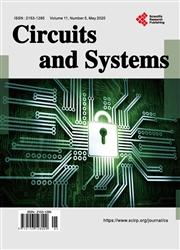Survey on Public Key Cryptography Scheme for Securing Data in Cloud Computing
引用次数: 13
Abstract
Numerous advancements in the Information Technology (IT) require the proper security policy for the data storage and transfer among the cloud. With the increase in size of the data, the time required to handle the huge-size data is more. An assurance of security in cloud computing suffers various issues. The evolution of cryptographic approaches addresses these limitations and provides the solution to the data preserving. There are two issues in security assurance such as geographical distribution and the multi-tenancy of the cloud server. This paper surveys about the various cryptographic techniques with their key sizes, time required for key/signature generation and verification constraints. The survey discusses the architecture for secure data transmissions among the devices, challenges raised during the transmission and attacks. This paper presents the brief review of major cryptographic techniques such as Rivest, Shamir Adleman (RSA), Dffie Hellman and the Elliptic Curve Cryptography (ECC) associated key sizes. This paper investigates the general impact of digital signature generation techniques on cloud security with the advantages and disadvantages. The results and discussion section existing in this paper investigate the time consumption for key/signature generation and verification with the key size variations effectively. The initialization of random prime numbers and the key computation based on the points on the elliptic curve assures the high-security compared to the existing schemes with the minimum time consumption and sizes in cloud-based applications.云计算中数据安全的公钥密码方案综述
信息技术(IT)的许多进步要求为云之间的数据存储和传输制定适当的安全策略。随着数据大小的增加,处理巨大数据所需的时间也越来越多。云计算中的安全保证会遇到各种问题。密码方法的发展解决了这些限制,并为数据保存提供了解决方案。在安全保障方面存在两个问题,如地理分布和云服务器的多租户。本文综述了各种加密技术及其密钥大小、生成密钥/签名所需的时间和验证约束。该调查讨论了设备之间安全数据传输的架构、传输过程中提出的挑战和攻击。本文简要介绍了主要的密码技术,如Rivest、Shamir-Adleman(RSA)、Dffie-Hellman和椭圆曲线密码(ECC)相关的密钥大小。本文研究了数字签名生成技术对云安全的总体影响及其优缺点。本文中的结果和讨论部分有效地研究了在密钥大小变化的情况下密钥/签名生成和验证的时间消耗。在基于云的应用中,随机素数的初始化和基于椭圆曲线上的点的密钥计算与现有方案相比以最小的时间消耗和大小确保了高安全性。
本文章由计算机程序翻译,如有差异,请以英文原文为准。
求助全文
约1分钟内获得全文
求助全文

 求助内容:
求助内容: 应助结果提醒方式:
应助结果提醒方式:


